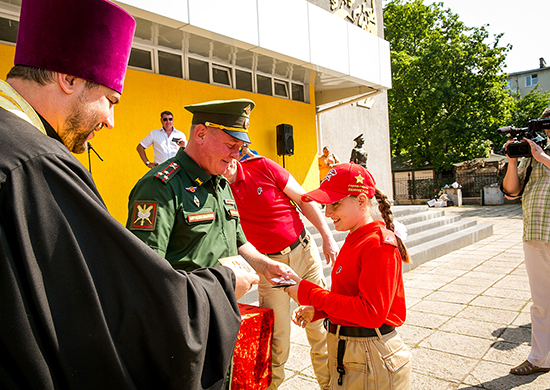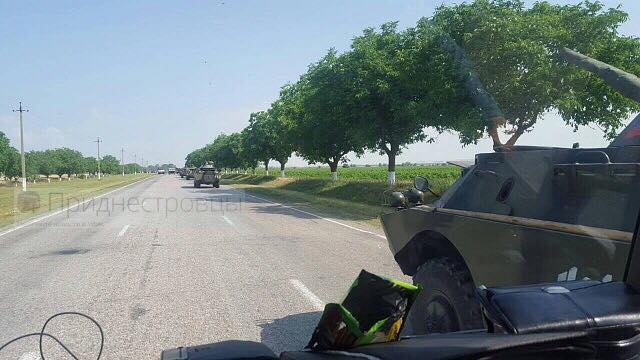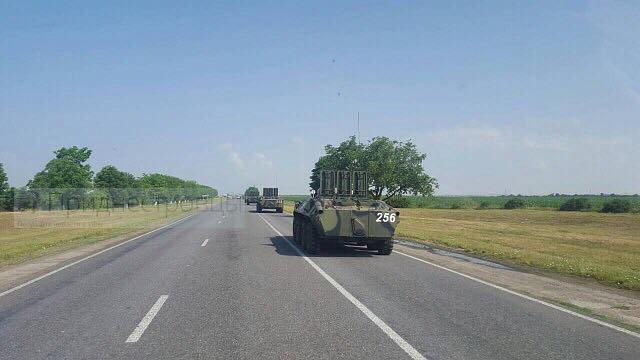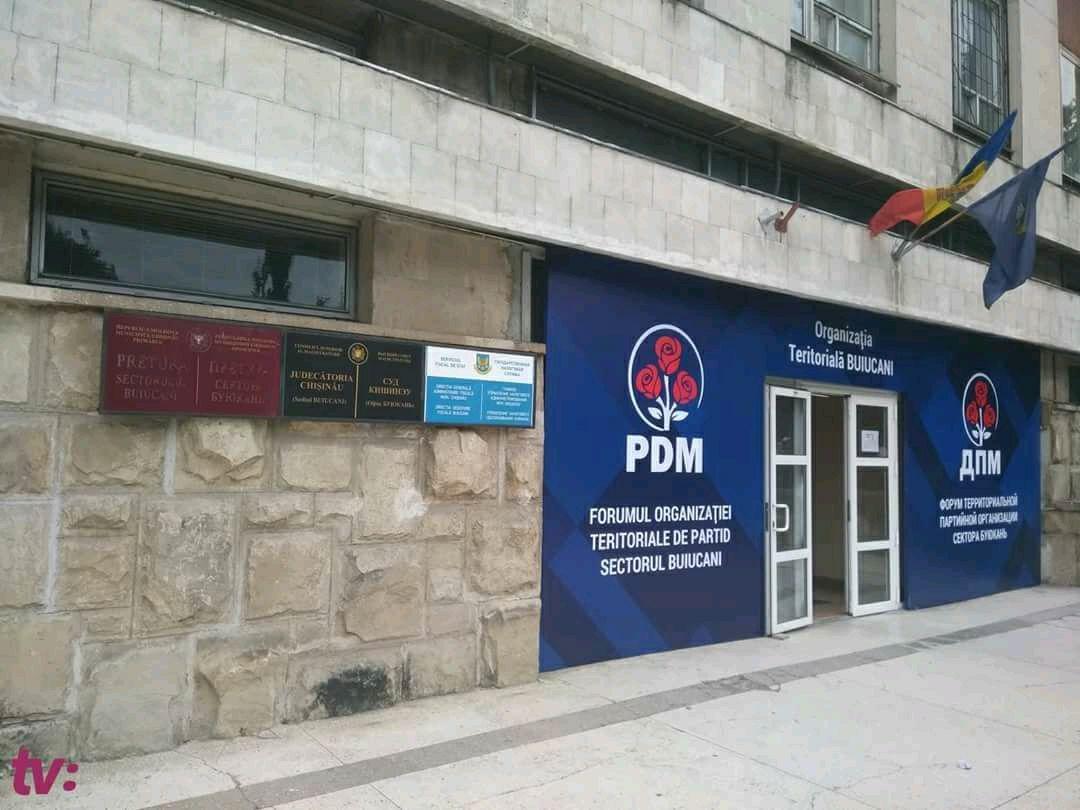Important
Weekly Roundup: Moldova’s UN resolution, Russians move within Security Zone, and the “Grand Theft” recovery strategy

It’s a late edition of Moldova.org’s Weekly Roundup.
Moldova’s UN General Assembly resolution: On 15 June 2018, the Foreign Minister of Moldova, Tudor Ulianovschi, announced on Friday about the registration of a draft resolution on the “withdrawal of foreign military forces” at the United Nations Secretariat.
The resolution titled “Complete and unconditional withdrawal of foreign military forces from the territory of the Republic of Moldova” is expected to be addressed to the UN General Assembly on June 22nd. Around 10 states are sponsors of the resolution. The resolution calls on the UN Member States to urge the Russian Federation to “complete orderly, unconditionally and without further delay the withdrawal of the Russian Operational Group of Russian Forces” (more commonly known as OGRT or OGRV), in accordance to its commitment agreed at the 1999 OSCE Istanbul Summit, but also the UN Charter.
Foreign Minister Ulianovschi emphasized that the resolution does not call for the withdrawal of the Russian peacekeeping contingent which is under the command of the Joint Control Commission, the main peacekeeping mechanism in the Transnistrian conflict settlement.
Moscow and Tiraspol are (obviously) not happy about the resolution (1st page, 2nd page), nor are some experts in the area.
Vlad Lupan, Moldova’s ex-Ambassador to UN, has found the draft resolution language too soft and imprecise on the terms of the withdrawal, and on the impartiality of Russia in the Transnistrian conflict settlement and the acting peacekeeping mission. Ambassador Lupan didn’t bother going deep into the details of the resolution.
Pure coincidence: Three columns of military vehicles, apparently Russian, were reported to be moving on the Tiraspol-Râbnița road in the Transnistrian region of Moldova in the morning of June 14th.
Some 40 TABs, DRDMs, URALs, ZILs, KAMAZes, and UAZes, accompanied by Transnistrian “police” were spotted on their way to the north of the region- most probably, to the Colbasna military depot.


The Moldovan Bureau of Reintegration expressed its concern in regard to the unauthorized movement of these military units within the presumably demilitarized Security Zone. Chișinău declared that it found “unjustified” application of “peacekeeping forces” symbols on the vehicles, most of which belong to the Operative Group of Russian Troops, illegally stationed in Moldova.
Moldova’s Bureau of Reintegration declares that the 4th article- the neutrality of the Russian army dislocated in the region-, of the 1992 Moldo-Russian Agreement on Transnistrian conflict settlement was violated, as well as the JCC provisions on preliminary informing on any movement of non-peacekeeping contingents.
The OSCE was notified about the incident. Neither Moscow, nor Tiraspol has come out with any position on the incident. Ukraine naturally “expressed its concern”.
Meanwhile, OGRT is not ceasing to conduct other “peaceful” activities in the Transnistrian region.
Here, the Russian officers congratulated some 50 Transnistrian children with their admission into the “Youth Army”:


Orthodoxy, militarism and Soviet nostalgia- the pillars of Russia’s policy in the occupied territories in one picture:

Of course, the Russian soldiers from OGRT participated in the Russia Day celebrations in Transnistria. A video can be found here.

Sticking to Russia: Moldovan Parliament speaker, Andrian Candu, declared in an interview for Censor that Ukraine, Moldova, and Georgia might come with a joint judicial complaint on the issue of Russian-occupied territories.
Candu also told the Ukrainian portal that President Dodon can be judged for “high treason”, but then interpreted it otherwise for the Moldovan press.
One cannot take Candu’s promises seriously. In regard to the joint complaint, we should expect an evaluation of the damage by the Russian occupation, at most.
Sticking to occupied territories: Transnistrian Communist “MP” Oleg Khorzhan was placed under arrest for 2 months, being accused of violently opposing arrest. On June 2nd, Khorzhan organized a non-sanctioned meeting in Tiraspol against the “oligarchic power”.
15%: GDP in the separatist region grew by 15.1% in comparable prices in the 1st quarter of 2018, after a deep plunge of around 30% in the past couple of years. The information was distributed by “PMR’s government”, IntelliNews reports, underlining the importance of EU exports in the region’s economy.
The “Grand Theft” Recovery Strategy: The Anti-Corruption Prosecution Office, together with the National Anti-Corruption Center and the General Prosecution Office, presented its 30-pages-or-so long strategy on recovering the stolen one billion EUR/USD from the three failed banks in 2014.
What prosecutors don’t (want to) tell the public is the names of the beneficiaries of the “Grand Theft”. Moreover, according to Newsmaker, there seems to be a small division between the bank thefts and the corruption cases that occurred during 2014.
The prosecutors reported that only 3,5% of the value of the stolen money was recovered. It’s 2018, by the way.
Heard of Moldovan justice independence?
A Chișinău court has postponed a confirmation hearing for pro-European Mayor-elect Andrei Năstase, whose election two weeks ago has been challenged by Socialists. Supporters of Nastase rallied outside as Chisinau City Court postponed the hearing on June 18 after the Chisinau District Electoral Council filed a motion to replace the judge. The court did not set a new date, reports Radio Free Europe.
Meanwhile at another Chișinău court:

Source: tv8.md
30% increase of budget for 2021-2027: The European Commission is proposing a 30 percent increase in its 2021-27 external-action budget, with a focus set on helping countries in its southern and eastern “neighborhoods” to raise standards in their efforts to join the European Union, Radio Free Europe reports.
What is pain? Patients with incurable diseases have something to say:
Ask here the palliative care foundation Hospice Angelus Moldova how you can relieve the pain of those patients.
Important
#WorldForUkraine – a map that shows the magnitude of the world’s actions against Russian aggression

The international community and volunteers from all over te world have launched #WorldForUkraine as a platform that shows the magnitude of the world’s actions against the Russian aggression. In a digital world – it is an interactive map of public support of Ukrainians under the hashtag #WorldForUkraine – rallies, flash mobs, protests around the world. In the physical dimension – it is your opportunity to take to the streets and declare: “No to Putin’s aggression, no to war.”
„Today, along with the political and military support, emotional connection with the civilized world and truthful information are extremely important for Ukraine. The power to do it is in your hands. Join the #WorldForUkraine project and contribute to the victorious battle against the bloodshed inflicted on Ukraine by the aggression of the Russian Federation”, says the „about the project” section of the platform.
Go to the streets — Tell people — Connect and Unite — Become POWERFUL
Volunteers have launched #WorldForUkraine as a platform that shows the magnitude of the world’s actions against Russian aggression. In digital world – it is an INTERACTIVE MAP of public support of Ukrainians worldforukraine.net under the hashtag #WorldForUkraine – rallies, flash mobs, protests around the world. In the physical dimension – it is your opportunity to take to the streets and declare: “No to Putin’s aggression, no to war.” There you may find information about past and future rallies in your city in support of Ukraine. This is a permanent platform for Ukrainian diaspora and people all over the world concerned about the situation in Ukraine.
So here’s a couple of things you could do yourself to help:
* if there is a political rally in your city, then participate in it and write about it on social media with geolocation and the hashtag #WorldForUkraine
* if there are no rallies nearby, organize one in support of Ukraine yourself, write about it on social media with geolocation adding the hashtag #WorldForUkraine
The map will add information about gathering by #WorldForUkraine AUTOMATICALLY
Your voice now stronger THAN ever
All rallies are already here: https://worldforukraine.net
Important
How is Moldova managing the big influx of Ukrainian refugees? The authorities’ plan, explained

From 24th to 28th of February, 71 359 Ukrainian citizens entered the territory of Republic of Moldova. 33 173 of them left the country. As of this moment, there are 38 186 Ukrainian citizens in Moldova, who have arrived over the past 100 hours.
The Moldovan people and authorities have organized themselves quickly from the first day of war between Russia and Ukraine. However, in the event of a prolonged armed conflict and a continuous influx of Ukrainian refugees, the efforts and donations need to be efficiently managed. Thus, we inquired about Moldova’s long-term plan and the state’s capacity to receive, host, and treat a bigger number of refugees.
On February 26th, the Ministry of Labor and Social Protection of Moldova approved the Regulation of organization and functioning of the temporary Placement Center for refugees and the staffing and expenditure rules. According to the Regulation, the Centers will have the capacity of temporary hosting and feeding at least 20 persons, for a maximum of 3 months, with the possibility of extending this period. The Centers will also offer legal, social, psychological, and primary medical consultations to the refugees. The Center’s activity will be financed from budget allocations, under Article 19 of Provision no. 1 of the Exceptional Situations Commission from February 24th, 2022, and from other sources of funding that do not contravene applicable law.
The Ministry of Inner Affairs and the Government of Moldova facilitated the organization of the volunteers’ group “Moldova for Peace”. Its purpose is to receive, offer assistance and accommodation to the Ukrainian refugees. The group is still working on creating a structure, registering and contacting volunteers, etc. It does not activate under a legal umbrella.
Lilia Nenescu, one of the “Moldova for Peace” volunteers, said that the group consists of over 20 people. Other 1700 registered to volunteer by filling in this form, which is still available. The group consists of several departments:
The volunteers’ department. Its members act as fixers: they’re responsible for connecting the people in need of assistance with the appropriate department. Some of the volunteers are located in the customs points. “The Ministry of Inner Affairs sends us every day the list of the customs points where our assistance is needed, and we mobilize the volunteers”, says Lilia Nenescu.
The Goods Department manages all the goods donated by the Moldavian citizens. The donations are separated into categories: non-perishable foods and non-food supplies. The volunteers of this department sort the goods into packages to be distributed.
The Government intends to collect all the donations in four locations. The National Agency for Food Safety and the National Agency for Public Health will ensure mechanisms to confirm that all the deposited goods comply with safety and quality regulations.
The Service Department operates in 4 directions and needs the volunteer involvement of specialists in psychology, legal assistance (the majority of the refugees only have Ukrainian ID and birth certificates of their children); medical assistance; translation (a part of the refugees are not Ukrainian citizens).
According to Elena Mudrîi, the spokesperson of the Ministry of Health, so far there is no data about the number of Covid-19 positive refugees. She only mentioned two cases that needed outpatient medical assistance: a pregnant woman and the mother of a 4-day-old child.
The Accommodation Department. The volunteers are waiting for the centralized and updated information from the Ministry of Labor about the institutions offering accommodation, besides the houses offered by individuals.
The Transport Department consists of drivers organized in groups. They receive notifications about the number of people who need transportation from the customs points to the asylum centers for refugees.
The municipal authorities of Chișinău announced that the Ukrainian children refugees from the capital city will be enrolled in educational institutions. The authorities also intend to create Day-Care Centers for children, where they will be engaged in educational activities and will receive psychological assistance. Besides, the refugees from the municipal temporary accommodation centers receive individual and group counseling.
In addition to this effort, a group of volunteers consisting of Ana Gurău, Ana Popapa, and Andrei Lutenco developed, with the help of Cristian Coșneanu, the UArefugees platform, synchronized with the responses from this form. On the first day, 943 people offered their help using the form, and 110 people asked for help. According to Anna Gurău, the volunteers communicate with the Government in order to update the platform with the missing data.
Translation from Romanian by Natalia Graur
Featured
FC Sheriff Tiraspol victory: can national pride go hand in hand with political separatism?

A new football club has earned a leading place in the UEFA Champions League groups and starred in the headlines of worldwide football news yesterday. The Football Club Sheriff Tiraspol claimed a win with the score 2-1 against Real Madrid on the Santiago Bernabeu Stadium in Madrid. That made Sheriff Tiraspol the leader in Group D of the Champions League, including the football club in the groups of the most important European interclub competition for the first time ever.
International media outlets called it a miracle, a shock and a historic event, while strongly emphasizing the origin of the team and the existing political conflict between the two banks of the Dniester. “Football club from a pro-Russian separatist enclave in Moldova pulls off one of the greatest upsets in Champions League history,” claimed the news portals. “Sheriff crushed Real!” they said.
Moldovans made a big fuss out of it on social media, splitting into two groups: those who praised the team and the Republic of Moldova for making history and those who declared that the football club and their merits belong to Transnistria – a problematic breakaway region that claims to be a separate country.
Both groups are right and not right at the same time, as there is a bunch of ethical, political, social and practical matters that need to be considered.
Is it Moldova?
First of all, every Moldovan either from the right or left bank of Dniester (Transnistria) is free to identify himself with this achievement or not to do so, said Vitalie Spranceana, a sociologist, blogger, journalist and urban activist. According to him, boycotting the football club for being a separatist team is wrong.
At the same time, “it’s an illusion to think that territory matters when it comes to football clubs,” Spranceana claimed. “Big teams, the ones included in the Champions League, have long lost their connection both with the countries in which they operate, and with the cities in which they appeared and to which they linked their history. […] In the age of globalized commercial football, teams, including the so-called local ones, are nothing more than global traveling commercial circuses, incidentally linked to cities, but more closely linked to all sorts of dirty, semi-dirty and cleaner cash flows.”
What is more important in this case is the consistency, not so much of citizens, as of politicians from the government who have “no right to celebrate the success of separatism,” as they represent “the national interests, not the personal or collective pleasures of certain segments of the population,” believes the political expert Dionis Cenusa. The victory of FC Sheriff encourages Transnistrian separatism, which receives validation now, he also stated.
“I don’t know how it happens that the “proud Moldovans who chose democracy”, in their enthusiasm for Sheriff Tiraspol’s victory over Real Madrid, forget the need for total and unconditional withdrawal of Russian troops from Transnistria!” declared the journalist Vitalie Ciobanu.
Nowadays, FC Sheriff Tiraspol has no other choice than to represent Moldova internationally. For many years, the team used the Moldovan Football Federation in order to be able to participate in championships, including international ones. That is because the region remains unrecognised by the international community. However, the club’s victory is presented as that of Transnistria within the region, without any reference to the Republic of Moldova, its separatist character being applied in this case especially.
Is it a victory?
In fact, FC Sheriff Tiraspol joining the Champions League is a huge image breakthrough for the Transnistrian region, as the journalist Madalin Necsutu claimed. It is the success of the Tiraspol Club oligarchic patrons. From the practical point of view, FC Sheriff Tiraspol is a sports entity that serves its own interests and the interests of its owners, being dependent on the money invested by Tiraspol (but not only) oligarchs.
Here comes the real dilemma: the Transnistrian team, which is generously funded by money received from corruption schemes and money laundering, is waging an unequal fight with the rest of the Moldovan football clubs, the journalist also declared. The Tiraspol team is about to raise 15.6 million euro for reaching the Champions League groups and the amounts increase depending on their future performance. According to Necsutu, these money will go directly on the account of the club, not to the Moldovan Football Federation, creating an even bigger gab between FC Sheriff and other football clubs from Moldova who have much more modest financial possibilities.
“I do not see anything useful for Moldovan football, not a single Moldovan player is part of FC Sheriff Tiraspol. I do not see anything beneficial for the Moldovan Football Federation or any national team.”
Is it only about football?
FC Sheriff Tiraspol, with a total estimated value of 12.8 million euros, is controlled by Victor Gusan and Ilya Kazmala, being part of Sheriff Holding – a company that controls the trade of wholesale, retail food, fuels and medicine by having monopolies on these markets in Transnistria. The holding carries out car trading activities, but also operates in the field of construction and real estate. Gusan’s people also hold all of the main leadership offices in the breakaway region, from Parliament to the Prime Minister’s seat or the Presidency.
The football club is supported by a holding alleged of smuggling, corruption, money laundering and organised crime. Moldovan media outlets published investigations about the signals regarding the Sheriff’s holding involvement in the vote mobilization and remuneration of citizens on the left bank of the Dniester who participated in the snap parliamentary elections this summer and who were eager to vote for the pro-Russian socialist-communist bloc.
Considering the above, there is a great probability that the Republic of Moldova will still be represented by a football club that is not identified as being Moldovan, being funded from obscure money, growing in power and promoting the Transnistrian conflict in the future as well.
Photo: unknown





















